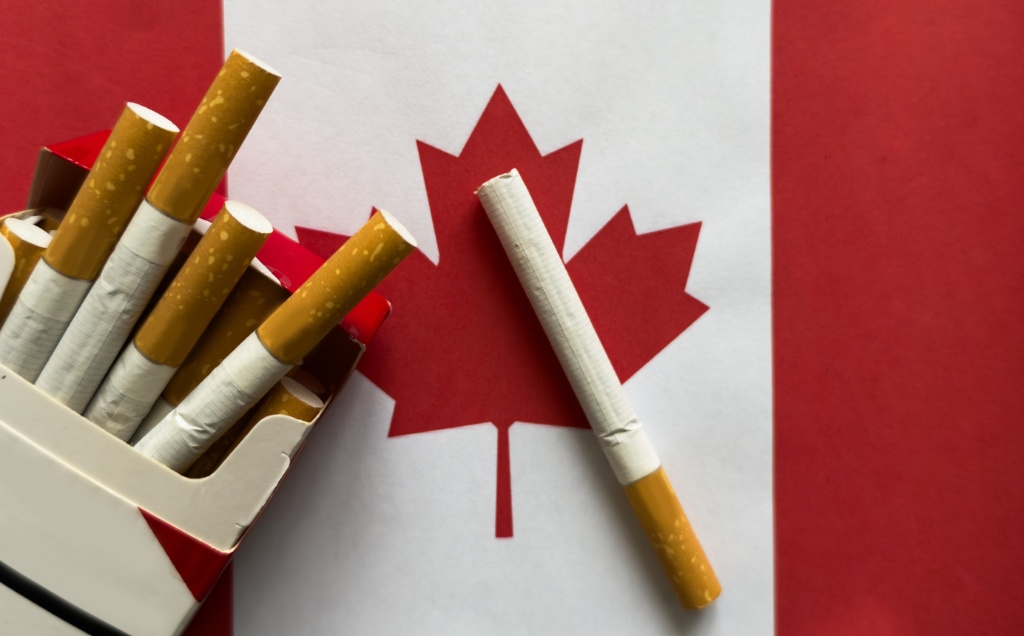October 26, 2018 | news
What Can Ontarians Learn from Colorado’s Experience with Legalized Marijuana?
Table of Contents
On October 17, 2018, the use of recreational marijuana became legal throughout Canada. That makes Canada only the second country in the world to have legalized the drug nationwide, and the first member of the G7 countries to do so. As a pioneer in national marijuana legalization, many questions about the potential impact of that move remain unanswered.
Of course, most of those questions are of interest mainly to provincial and federal policymakers. But one question that is of interest to us as Ontario car accident lawyers is how legal marijuana in Ontario might impact traffic safety in the province. To help answer that question, we can look to the experience of the handful of U.S. states that have also legalized recreational marijuana.
In particular, we can focus on Colorado, where a law-enforcement agency recently released a report analyzing the impact of legalization on traffic fatalities and the frequency of drivers driving under the influence of marijuana. By considering that data, what lessons can we Ontarians draw from Colorado’s experience with legal cannabis?
- Since recreational marijuana was legalized in Colorado, the number of marijuana-related traffic fatalities has increased.
- Similarly, the number of drivers testing positive for marijuana in Colorado has also increased.
- Ontarians should let Colorado’s experience with legal cannabis serve as a reminder of the need to consume the drug responsibly and not get behind the wheel of a car while high.
Colorado’s Experience With Legalized Marijuana
Voters in Colorado authorized a state constitutional amendment legalizing recreational marijuana in November 2012. Possession and use of marijuana became legal almost immediately, although sales of marijuana only became legal in January 2014. But even that later date means Colorado now has nearly five years of experience with how legalization has affected the state’s traffic safety.
One organization that has tracked the effects of legalized marijuana in Colorado is the Rocky Mountain High Intensity Drug Trafficking Area (RMHIDTA), a law enforcement organization that helps coordinate drug-enforcement activities between federal, state, and local authorities.
According to a September 2018 report from the RMHIDTA, marijuana-related traffic fatalities are up in Colorado since legalization and the number of drivers testing positive for marijuana is also increasing.
Post-legalization Traffic Fatalities In Colorado
The RMHIDTA’s report begins by providing some statistics regarding the effect of marijuana legalization on Colorado’s traffic fatalities. According to the organization:
- Marijuana-related traffic deaths are up. Whereas all traffic fatalities have increased 35% since 2013, those related to marijuana have increased by 151% in the same period.
- Traffic fatalities involving drivers testing positive for marijuana have increased. In 2013, 55 people died on Colorado roads in a collision in which a driver tested positive for marijuana. By 2017, that figure had jumped to 138.
- The percentage of traffic fatalities related to marijuana use is increasing.4% of all traffic fatalities were marijuana-related in 2013, compared with 21.3% in 2017.
However, the RMHIDTA’s data does have some weaknesses. For example, its definition of “marijuana-related” is very broad, including “any time marijuana shows up in the toxicology report.”
But, as one expert explained to the Denver Post, “[u]nlike alcohol, THC can remain detectable in the blood stream for days or weeks, when any impairment wears off in a matter of hours.” In other words, “marijuana-related” doesn’t always mean “caused by marijuana.”
Driver Drug Screening
According to the RMHIDTA’s report, more individuals arrested for impaired driving in Colorado are testing positive for marijuana since legalization. In 2013, roughly 2,500 arrestees tested positive, compared with around 3,700 last year. That amounts to a nearly 50% increase in marijuana-positive drug screenings in four years.
Similarly, the number of driving-under-the-influence citations issued for drug use (DUID) have also increased since legalization. In 2014, the number of DUID charges involving marijuana was 674. In 2016, that figure had reached as high as 780, although last year saw only 719.
These statistics suggest that more Coloradans may be driving while high, putting themselves and others on the road at greater risk of harm.
Legal Marijuana In Ontario: What Can We Learn From Coloradans’ Experience?
What does all this mean for Ontario drivers? For now, it’s tough to say. Ontario is not Colorado, and the U.S. jurisdictions that have legalized marijuana face several unique problems that Ontario won’t:
- The possession and sale of marijuana remain illegal under U.S. federal law, which may be depressing the number of Coloradans currently consuming marijuana.
- Because marijuana is still illegal under U.S. federal law, their federal bank regulators have made it difficult for many cannabis businesses to open bank accounts. Being forced to deal in cash may be depressing the number of businesses operating in the marijuana market.
Here in Ontario, we won’t face those issues, because marijuana is now legal throughout Canada. As a result, it isn’t clear how much we can expect Ontario’s experience in a post-legalization world to mirror Colorado’s.
Perhaps the cannabis market will be better-developed here, leading to even higher rates of traffic violations and marijuana-related traffic fatalities. Or maybe the fact that marijuana will be legal throughout Canada under federal law will produce a more responsible population of marijuana consumers here than in Colorado.
In either case, we in Ontario can still consider Colorado’s statistics as a reminder of facts we really should already know. For example, Colorado’s experience can serve to remind us that marijuana use can impair your ability to safely operate a motor vehicle. If you consume marijuana and then get behind the wheel, you’re putting yourself and other drivers at risk of death or serious injury.
Similarly, keep in mind that whatever precautions you may take to avoid driving high (such as by calling an Uber or Lyft instead of driving yourself somewhere), not everyone else will do the same. So, as always, be aware of those around you while driving.
If you have any questions, or would like to consult with a personal injury lawyer on the specifics of your case, contact us today for a free initial consultation.
Learn more: Marijuana Legalization and Accident Benefits: What You Need to Know
Blog Categories
More news Topics
Here’s more information on news related topics that we think you might find helpful.

news
|
May 29, 2025
Smoking in Canada: The Territories That Have the Most and Least Smokers and the Effect This Has on the Public Healthcare System
New Brunswick Has Highest Smoking Rate in Canada, Study Reveals New Brunswick leads Canada with a smoking rate of 15.8%, exceeding the national average of…

news
|
February 23, 2021
Russ Howe Joins Preszler Injury Lawyers
Russ Howe Continues His Plaintiff Personal Injury Practice With Preszler Injury Lawyers Russ Howe, lawyer and co-author of “Hope and Help for Chronic Fatigue Syndrome…

news
|
May 28, 2020
Preszler Donates to Daily Bread Food Bank
MEDIA CONTACT: Preszler Injury Lawyers 1-800-JUSTICE Preszler Donates To Daily Bread Food Bank To handle the shortages of supplies throughout the country and the world…
